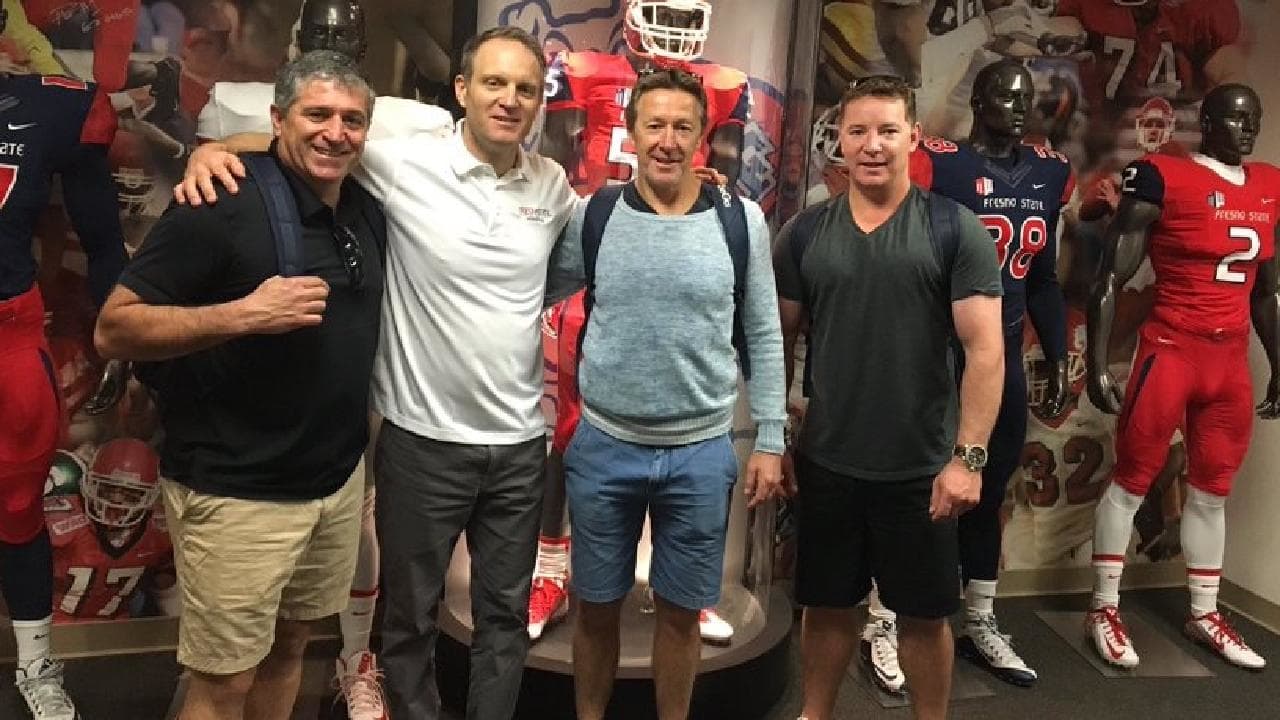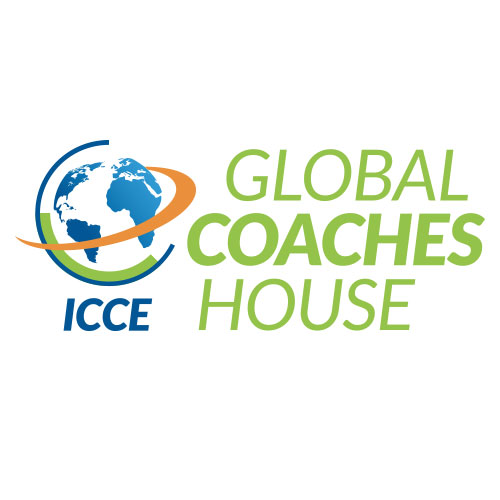I believe we as coaches need to assist players in building and maintaining positive mindsets while creating fulfilling experiences through interactions on and off the field. How can we do so? Ideas such as encouraging players to be "present" through sports specific mindfulness tactics, being aware and encouraging their individual visions, both short and long term, to support their aspirations and find ways they can effectively and purposefully achieve their goals can be some adopted tactics yet the importance of coach-athlete relationships right through their playing careers shall ensure a holistic entry and exit from rugby union.
Good coach-athlete relationships can assist in offering the emotional support and perceived efficacy in sport to assist prolonged athlete involvement, retention and engagement, which can be enhanced by understanding of what players’ value and why. Previous research by Gould’s found ideas for coaches such as cultivating personal involvement with players, offering two way communication, utilising player input and understanding player’s feelings (Gould, Tuffey, Udry, & Loehr, 1996) could strengthen these areas for player support. Cresswell and Eklund (2006) also found ideas such as enjoyable challenges within rugby, open and free communication with coaches and management alongside few or flexible responsibilities outside sport allowed and encouraged player engagement, reduced burnout or dropout and ease the exit anxiety which Holbeck shall be looking at. Coaches and administration staff alike should take note from qualitative investigations which found attributions to burnout symptoms included transitions between competitions or stages in season, which added emotional and mental stress akin to areas mentioned by Holbeck; pressure to comply and perform in elite environments and negative development environments, all areas which could factor and enable greater control for players and coaches alike.
So, from previous research and current adopted ideas, what does good coach-athlete relationships look like? The challenge of successful coaching is acknowledging social interactive dilemmas within individual and team goal setting and development, offering suitable scenarios and choices with all members’ involvement and collaboratively dealing with matters as opposed to eradicating them. Past research by Mageau and Vallerand regards the “actions of coaches as (possibly) the most critical motivational influences within sport setting”. Coaching should be recognised as an educational dynamic relationship, where the coach can satisfy player’s goals and development but both sides have an investment of will capital, where human initiative and intentionality are both dedicated to show commitment towards goals and relationships.
The main aspects of influential and successful coach-athlete relationships revolve around ideals such as mutual trust, respect, support, cooperation, communication and understanding of each other and impact of each other within the relationship. Both performance enhancement and physiological well-being is deeply ingrained within the coach-athlete relationship. Coaches need to acknowledge and recognise the effects of positive, interdependent relationships, which are dynamic and interlinked with cognition, feelings and behaviours to achieve common recognised goals (Jowett, 2007). Therefore, a coach’s ability to acknowledge and develop positive interpersonal connections, driven by interpersonal skills and united sense of purpose and achievement, can offer solid base for positive group climate. As in PYD (positive youth development) models, a coach should look to offer opportunities to continually develop strengths, improve performance and increase positive emotional states.
Coaches should assist players to identify problems as opposed to solving them, offering ideas and assistance for how to think and act as opposed to offering solutions, ideas which have been touched on by both Holbeck and McCutcheon. As Getzels and Csikszentmihalyi’s research addressed, creative people are driven by discovery and creation of problems as opposed to superior skills or ability. Therefore, coaches within HP rugby programs could adopt ideas from Vygotsky’s Zone of Proximal Development (ZPD), where this theory has the coach standing as a recognised more capable other to the athlete with their requirement being to engage in contextual collaborative and learning relationship with athletes to ensure optimal psychological functioning for maximal sporting performance. Zone of proximal development (ZPD) as defined by Vygotsky, is an area I believe would be successfully applicable to PYD promotion and specialising athletes in team sports such as rugby union and offer life building skills for when exiting the sport.This theory encourages players to ask questions and adopt sub routines; therefore, the players are taking over the structure of tasks and practice while acquiring performance or transfer of performance. This again allows coaches to act as mentors, supporting players to develop meta cognitive skills where the athletes are aware of and take responsibility of appropriate practices and thinking strategies. This supports the ideas of learning being a series of episodes; scaffolding, where players identify and build knowledge, another key point identified by Pat McCutcheon in regards to developing the players as "better blokes".
Another stage for developing "better blokes" or structure for them to be working towards life after rugby is considering or thinking about adopted knowledge, where players can work independently to analyse developed ideas and skills with last stage being evaluating learning. Through this adopted approach, they could identify applicable monitoring, review and learning processes such as self or peer review or socio-constructivist theory, where learning occurs in social groups through ongoing interactions between relevant people. This method positions coaches as mentors where they shift from knowledge expert for athlete as in early stages of development to learning manager or facilitator (Carnell and Lodge, 2002), offering constructive feedback for the player to investigate further.
These studied theories could be supported by Entwistle and Smith’s research (2002); this allows an athlete to explore personal understanding of subject or sport in question, assisted with relevant, timely and challenging feedback from coach or mentor. These theories promote the ideas of both learner/athlete and educator/coach to act, reflect, evaluate, plan and experiment prior to acting and starting the cycle over again. These processes offer both players and coaches security to adopt and test skills in preparation for competitive environment, understanding that all involved parties can reflect and plan new strategies if required. As opposed to a coach led or directive approach, it offers players autonomy to internally understand sport expectations and how they may offer new solutions or scenarios to develop mastery approach or elite status.
Part of the importance and difficulty of good coach-player relationships is the perceived passion towards the sport. Both parties having harmonious passion, defined as “autonomous internalization that leads individuals to choose to engage in the activity that they like” (Vallerand et al., 2003), towards rugby should be positive for all dimensions for coach-athlete relations and result in understanding of importance of sport yet not over whelming in each other’s identity. An equally or unequally obsessive passion towards the sport can show positive signs for direct commitment to the player-coach relationship yet shall result in externally regulated motivations taking control, with player or coach being more controlled by outcomes which are regulated or recognised by others than those within relationship. High quality coach-athlete relationships, which are optimised by harmonious passion, result in higher subjective well-being within player (Lafrenière, 2008), an area which is critical for player retention and development of self-determined motivations and mastery mindset.
My current research of personal strivings amongst age grade elite players such as players found in McCutcheon's GenBlue offers a potential framework to strengthen these coach-athlete relationships in future. Robert Emmons, creator of Personal Strivings assessment, found pursuit of strivings offered basic needs, similar to Self Determination Theroy, investigated by Deci and Ryan amongst others. Strivings offer safety and control (akin to autonomy), social belongingness (akin to relatedness) and self-esteem and competence (Emmons, 1999). Possession of and progression towards intrinsically important goals “instantiate needs of autonomy, competence and well being” (Emmons, 1999), which closely tied to player well-being.
Emmons and Diener (1986) researched the positive effect related to presence and attainment of important goals in everyday life, echoing Emmons belief of progressing toward meaningful life goals is a prerequisite for subjective well-being (Emmons, 1986). Sheldon and Kasser (1995) suggested personal strivings serve as “motivational organising principles that lend coherence and continuity to day to day goal pursuits”. Strivings explore the link between motivational aspects of personality and environment as defined ideographically, therefore being important components why individuals would spend time in certain situations while avoiding others (Emmons, 1991); as investigated, goal attainment is related to well-being over time whereas commitment regarded as unrelated (Emmons, 1999).
Therefore on the information provided and past research, I feel Holbeck and McCutcheon could place a greater empathsis on coach-athlete relationships while in RA programs, including addressing the social and mental sides of coaching, assisting players build intrinsic motivations within and away from the game and ensuring Rugby AUS has emotionally satisfied players entering and exiting into life after rugby. On this note, keep an eye out for my new mentoring program staring soon for athletes of all ages, offering ideas and collaborative solutions for strengthening mental skills required for elite programs and professional environments.










